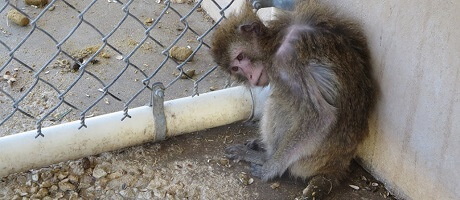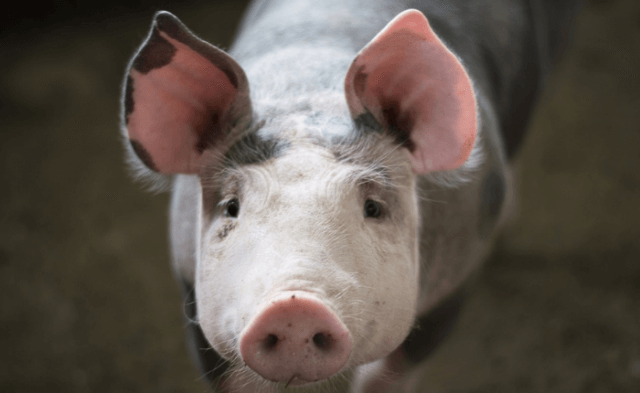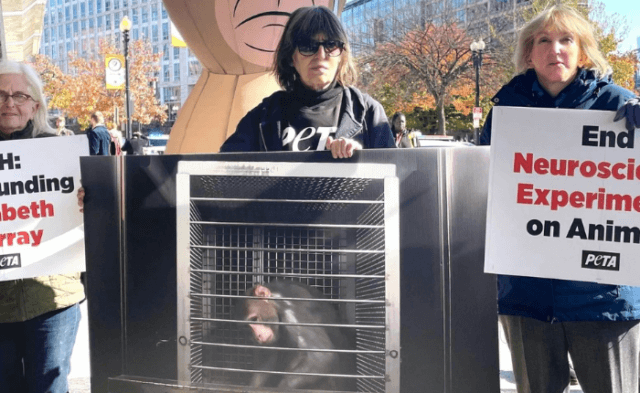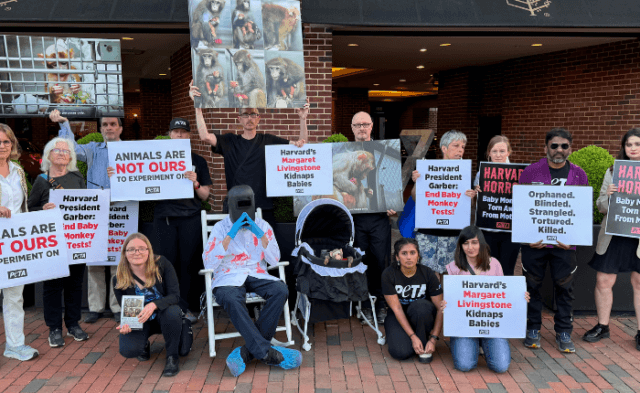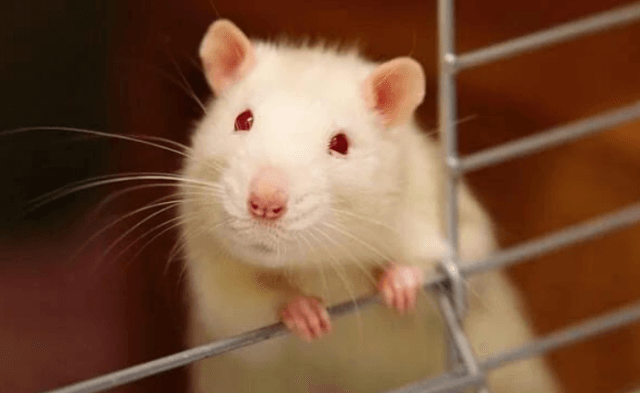This article was originally published in PETA’s Augustus Club newsletter.
In order to protect her identity, we aren’t printing B’s full name. She is an extremely valued member of the PETA team, although most of our staff have never met her. She goes into animal-abusing facilities, and when she finds cruelty— which is, regrettably, all the time—she takes video footage and uses her own eyewitness accounts to get something done about it. She has uncovered cruelty at a number of facilities, including at a dealer that imports and sells terrified, sick, and injured monkeys to laboratories. Following is an interview with her, in which she discusses the obstacles that she encounters and explains how she overcomes them in order to expose animal abuse that is intentionally and carefully hidden from the public.
Augustus Club: How did you get involved in animal rights?
B: I’ve always felt a connection with animals ever since I was little. When I was 17, I saw a PETA video of a chicken farm investigation. That inspired me to go vegetarian, and a few years later I became vegan.
AC: When you watched that investigative footage, did you have any idea that someday you would be the one behind the camera?
B: Well, I can’t say that I immediately thought to myself, “That’s what I’m going to do.” But I do remember thinking how cool these types of investigations were and being very curious about the process.
AC: What did you do before you came to PETA?
B: I worked with animals in various settings, including in a veterinary clinic.
AC: When you started your first assignment as a field observer, were you more excited than nervous, or vice versa?
B: Both, in equal measure.
AC: When you applied for the position, did you have any particular area that you were most interested in (e.g., circuses, the pet trade, laboratories)?
B: I was open to everything. And I was curious about everything. I had heard from people who disagree with PETA’s philosophy say things like, “The PETA videos are doctored,” or “They just edit stuff to make it look worse than it really is.” So I was genuinely interested in seeing exactly what I would find and how the editing process really worked.
As it turned out, on every field observation assignment I’ve been on, I’ve seen animals suffering so badly that I probably wouldn’t have believed it myself if I hadn’t seen it with my own eyes.
My one consolation is that I only have to witness it once in real time. I feel bad for my colleagues who edit all the many hours of video footage because they have to watch it over and over again and, of course, for the animals who continue to endure it.
AC: When you’re in the field, you can’t let it show on your face that you’re disturbed when you see an animal suffer. How do you prepare psychologically to mask your emotions?
B: I think of it as playing a character. But the level of empathy that I can show toward the animals really depends on the type of establishment that I’m observing. For example, in the meat and dairy industries, showing too much concern for the animals is a sure tip-off. But at a place like Primate Products, Inc., a company that sells monkeys to laboratories, they advertise the monkeys as being in good health, so when I saw monkeys who were obviously sick or injured, at least I was able to express concern and ask that the monkeys get medical care (as part of improving “product quality”).
AC: When you’re on assignment, are you allowed to tell your family and friends what you’re doing?
B: No, definitely not.
AC: Is it difficult not to have the support of friends and family when dealing with such emotionally upsetting circumstances?
B: It is, but fortunately, my coworkers at PETA provide me with tons of emotional support. They go out of their way to let me know they have my back.
AC: Have you ever had any close calls in which someone has discovered you recording something?
B: Only one time. I was recording video with a handheld device when a fellow employee walked up behind me and asked, “What’s going on?” There were two different things she could have meant by that question. She might have been asking why I was recording video, in which case it would have meant that I had just blown my cover. Or she could have simply been starting a friendly conversation with the equivalent of “Hi, what’s up?” As I put my device away and turned around, my heart was racing because I couldn’t tell from her tone of voice which one it was. Fortunately, it turned out to be the latter.
AC: Is there anything else you’d like to share with our Augustus Club members?
B: I would like to thank them for making my work possible and for supporting the work of all of my colleagues in PETA’s Cruelty Investigations Department. I’ve never worked with a more brilliant, caring, committed group of people. I’m thankful every day for being part of this team and for being able to make a difference in the lives of animals.
This article was originally published in PETA’s Augustus Club newsletter. PETA’s Augustus Club is a complimentary club honoring those who are leaving a legacy for animals through a planned gift to PETA. If you have made a planned gift to PETA, please let us know so that we can thank you! If you have not yet left a legacy for animals but would like information on how to do so, please contact us.

